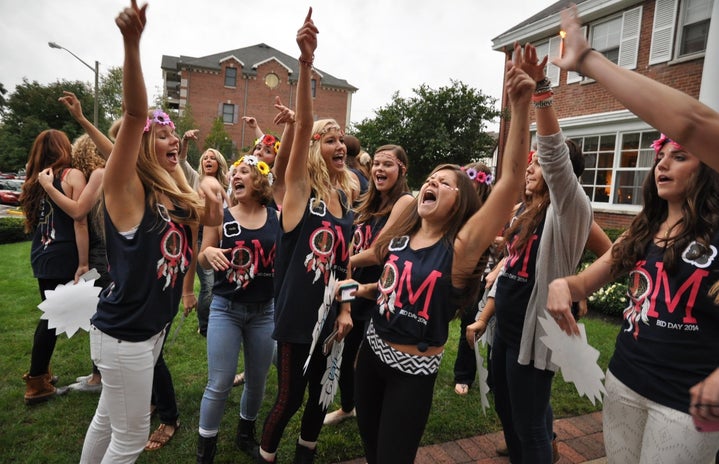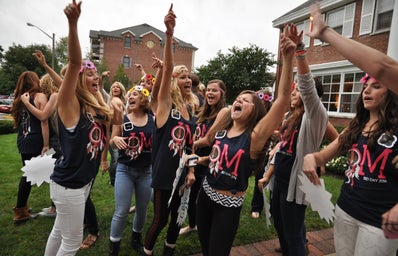The PBS documentary Hazing by director Byron Hurt weaves a complicated portrait of toxic masculinity, cultural rituals, and the tight-lipped legacy of sororities and fraternities. Hurt uses his personal experience––both as a victim and a perpetrator of hazing––to empathetically unpack why young people lose their lives or sustain serious injuries to be a part of a college organization.
Hurt begins his journey with Historically Black Sororities and Fraternities, otherwise known as the “Divine Nine.” Explaining that the general public tends to “victim blame” for incidents of hazing (i.e., why didn’t you just leave?), Hurt explores the case of Kristin High and Kenitha Saafir. The two died in a drowning “accident” that occurred after the girls were instructed to walk backward into the ocean.
This highlights a common thread in the film: “why do we have to die to fit in?”. It’s easy to be dismissive of cases of hazing, but through testimonials from the victim’s families, we understand the girls’ desire to be a part of something bigger. Black sororities and fraternities were created when Black students were excluded from historically White organizations. After years of building a tight-knit community, some of the most renowned Black leaders (including Kamala Harris and Toni Morrison) took part in the Divine Nine.
With this historical context, the cases of Kenitha and Kristin read totally differently. Being a part of these organizations was more than a social endeavor; but was a rich cultural tradition that elevates Black community members. As some of these organizations begin to thin out and verge on extinction, cultural critics in the documentary wonder if hazing rituals are a way of testing members’ loyalty. Though many victims were deeply traumatized by the incident, they still expressed love for their organization.
Hurt was similarly influenced by a desire to find community. He attended a predominantly White university and longed for a Black community like the one he had growing up. This led him to join a historically Black fraternity. He empathizes with young fraternity pledges but also understands how members become a part of the violence that ensues. Hurt engages in courageous conversation and doesn’t shy away from the more undesirable aspects of his time in Greek Life.
Hazing not only recounts the stories of the victims but it also looks forward to a brighter future. Hurt calls for systematic change within the institution. Back by millions of dollars of wealth, Greek life is cemented in the college experience. Therefore, the solution must come from the university, Greek organizations and students themselves.
Through these impactful victim statements and reflections from survivors and perpetrators, Hurt unravels a cult of toxic masculinity and secrecy. Though he doesn’t advocate for the abolition of these organizations, he recognizes that change must come.
This documentary is a must-see for anyone considering Greek Life, attending college, or simply for those who want to be a part of radical change.


